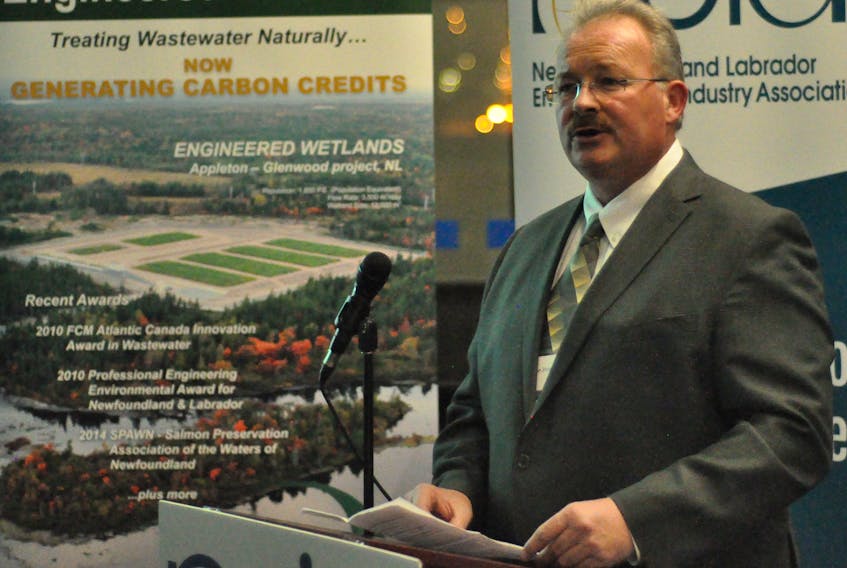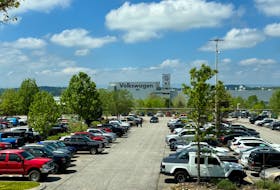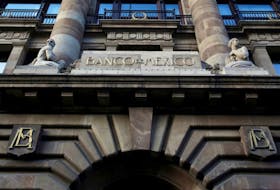When Glenn Sharp started the process of generating carbon credits from a pair of wastewater treatment facilities in the towns of Appleton-Glenwood and Stephenville in the early 2010s, he admits that people — even some of his friends — were skeptical.
Seven years later, Sharp’s company — Sharp Management — and the towns have 55,071 quantified, verified and certified locally produced credits for sale through their broker, Carbonzero.
“If you wish to offset your carbon footprint … you can now do that with a locally grown product as opposed to something that’s coming from a carbon credit created somewhere else in Canada or somewhere else in the world,” Sharp says.
“I don’t want to count my chickens before they hatch, but I think there’s a good possibility we’ll sell a good number here.”
For the first three months, the credits will be sold exclusively in this province to individuals and firms that operate here.
“I’m a proud Newfoundlander and I want to give the opportunity to others here to make a stand, to make a difference,” he says.
Premier Dwight Ball, who spoke at the event announcing the news, lauds the notion of selling local first and says it will give companies that purchase credits a competitive advantage.
“There are people that will make a decision who they do business with and where they make purchases based on companies that are environmentally friendly and taking their carbon emissions seriously,” Ball said.
As a gesture of support and an indication of its commitment to enacting real environmental change, the province will be among the first to buy some of these credits to offset the emissions produced by government employees traveling by air and road to conduct public consultations.
A spokesperson for the province’s climate change branch wasn’t able to provide the exact number, but says it was not a significant amount.
Credit costs
Simply defined, carbon credits, sometimes called carbon offsets, are reductions in greenhouse gas emissions generated by one entity engaged in a reduction project and then sold or traded to another entity interested in mitigating the emissions from its own activities.
Until such time that the province introduces its climate change action plan in response to the federal government’s recently announced target to reduce economy-wide greenhouse gas emissions by 30 per cent below 2005 levels by 2030, the market for buying these credits is voluntary, meaning there’s no legislated requirement for any greenhouse-gas emitting company to purchase them at this time.
“It’s still volunteer because I’m asking people to offset before the provincial government puts in the regulations and then it will only affect, really, three or four main companies,” he says, pointing to Nalcor’s Holyrood Thermal Generating Station, NARL Refining LP’s Come By Chance refinery, and Rio Tinto’s Iron Ore Co. of Canada in Labrador City, all of which were near or above a million tonnes of emissions annually in 2016.
Typically, credits in a voluntary market — like the optional ones sold by airlines when you book a flight — sell for around $5 or $6. Given that these are a limited-edition credit, Sharp says they’ll sell them for $25 apiece, in line with the regulated price announced by Manitoba last week.
“It’s not what you’re buying, it’s what pollution do you create that you’re going to offset,” says Sharp.
Asked if companies considering purchasing from a voluntary market were really only buying good publicity, Sharp says they’ve been doing that for a long time, only now it’s making a difference to the planet.
“The people that are sitting in the UN and in federal governments are not making this legislation and changes because they’re thinking of good PR, they’re thinking of how to save the world. We’ve got to stop thinking this is a nice thing to do.”
Proceeds from the sale of the credits are being split 50-50 between Sharp Management and the municipalities.
While Sharp Management brought the logistical and engineering know-how, he says full credit is owed to the towns for taking the initiative to go green.
“The towns are reducing the pollution enough that they now can offer that to other people. They’re doing more than any of us have done and it’s time the rest of us stood up and started to do something.”
In recognition, Sharp awarded the first three credits and their commemorative certifications to the three towns.
While the current stockpile of offsets was created over 10 years in Appleton-Glenwood and seven years in Stephenville, the next batch of 50,000-plus will come from a three-year rotation (2017-2019) bolstered by new credits generated from the Bishop’s Falls wetland sewage treatment facility that began operation last year.
Twitter: kennoliver79
Provincial carbon pricing plan on the way: Ball
Premier Dwight Ball says the province will release its carbon pricing plan to the federal government within the next few months in preparation for Canada-wide carbon pricing to come into effect as of January 2019.
The plan, he says, will be tailored to and respond to the economic, social and physical realities in the province, and a major consideration is the offshore oil and gas industry.
“It’s very difficult to continue to grow our offshore without increasing our carbon footprint, so we will take a lot of initiatives how we reduce the amount of carbon in a barrel of oil.
“As an example, we’re doing a very good job of that right now. … We are better than the global average, we are much, much better than what we will see in Alberta, as an example. But we must always continue to be innovative in making sure we reduce the amount of carbon in a barrel of oil offshore.”
Ball also says the subject of the province’s offshore oil emissions regulation going from a federal to provincial responsibility has been a point of discussion in Atlantic Accord negotiations for the last year or so.
As for onshore industries, Ball says it will be “performance based.”









